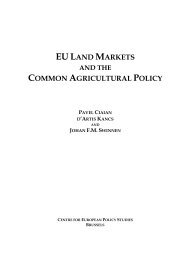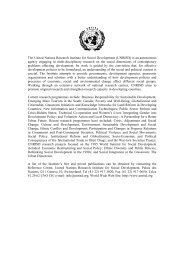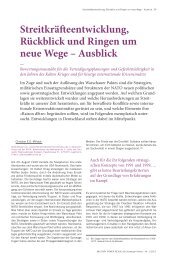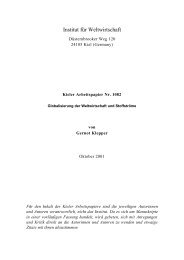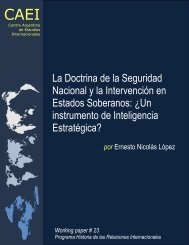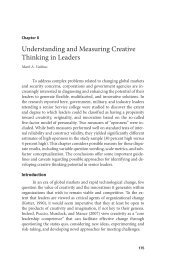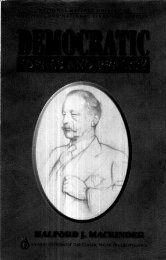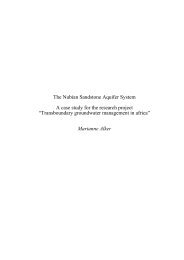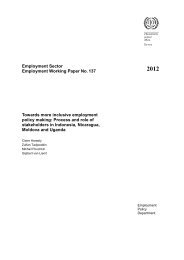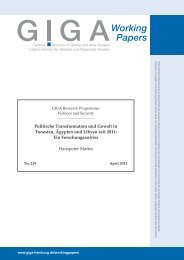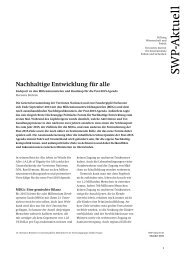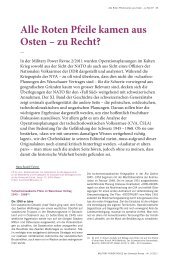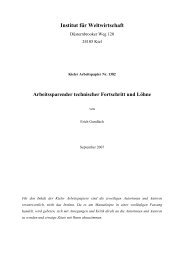A Postcolonial-Feminist Alternative to Neoliberal Self/Other Relations
A Postcolonial-Feminist Alternative to Neoliberal Self/Other Relations
A Postcolonial-Feminist Alternative to Neoliberal Self/Other Relations
Create successful ePaper yourself
Turn your PDF publications into a flip-book with our unique Google optimized e-Paper software.
diplomacy’ was used often and effectively <strong>to</strong> solidify relations between Han<br />
Chinese and the Huns in 2 AD (Sen 2004). Equally significant, Buddhism’s<br />
integration with Confucianism helped <strong>to</strong> mitigate the authoritarian tendencies of<br />
the latter and the other-worldliness of the former <strong>to</strong> foster a new political activism<br />
tempered with compassion. For example, the renowned poet-official, Su Shi<br />
(1037-1101), exercised both by convincing local wealthy families <strong>to</strong> donate funds<br />
for orphanages throughout his jurisdiction (Egan 1994);<br />
2. Valorization of Women and Femininity. Though patriarchy prevailed throughout,<br />
borderland societies granted significant venues for women’s agency precisely<br />
because the environment was so mixed and confusing (Devahuti 2002: 69).<br />
Women were seen as naturally shamanistic, for instance, given their general<br />
sensitivity <strong>to</strong> cultural mores and needs. Besides performing rituals of nature and<br />
other cathartic acts, shamans ‘look[ed] after the needs of individuals and families<br />
as well as of the tribe as a whole’, (Devahuti 2002: 69). Women led in other<br />
realms as well, such as establishing a monastery or introducing sericulture <strong>to</strong><br />
China’s ‘hinterland’ (Devahuti 2002: 93). One could argue that recognizing<br />
women’s ‘special’ shamanistic ability entrenches, not reverses, hypermasculinity.<br />
But this recognition flouts a fundamental justification of hypermasculinity: that is,<br />
it protects women and other feminized subjects even while exploiting them.<br />
When major decisions, such as life and death due <strong>to</strong> war or illness, or when and<br />
how <strong>to</strong> proceed on difficult travel across vast terri<strong>to</strong>ries, rely on a female<br />
shaman’s predictions, forecasts, or prayers, hypermasculinity’s pretensions must<br />
give way <strong>to</strong> respect and acknowledgement;<br />
3. ’Nizhong you wuo, wuozhong you ni’ (‘I in you and you in me’). This rich mix in<br />
the borderlands inculcated a sensibility of multi-layeredness, intersectionality, and<br />
rotationality. For instance, the ancient kingdom of Khotan, now in Northwestern<br />
China, was, during the Silk Road era, ‘a most important centre of Buddhist<br />
learning and research, frequented for that purpose both by the Chinese and the<br />
Indians’ (Devahuti 2002: 94). Khotan’s past and present both merit consideration<br />
contrapuntally, as Said would say, for one could turn in<strong>to</strong> the other at any time.<br />
Similarly, Dunhuang, also in <strong>to</strong>day’s northwest China, provided a site for 7 th -<br />
17



